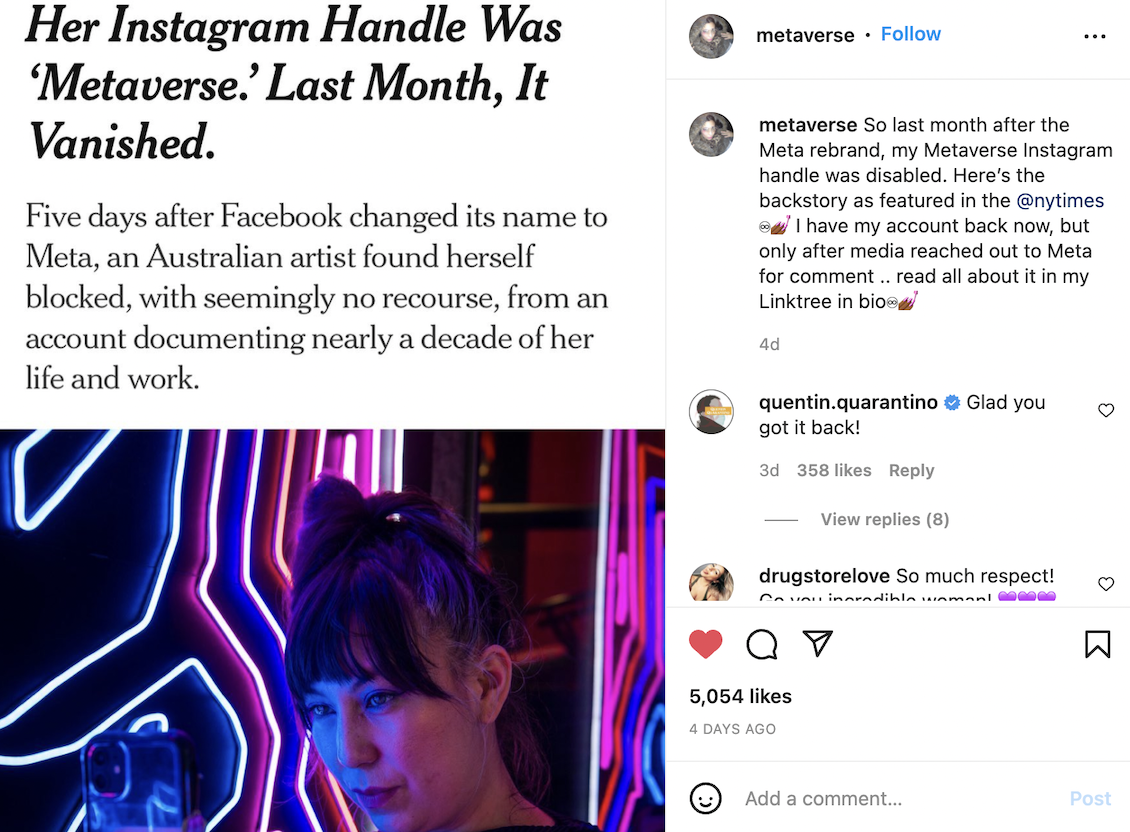After announcing Facebook’s rebranding to focus on developing the Metaverse, several projects have started similar initiatives to enter the virtual space, from buying real estate in the Metaverse to testing the limits of what this new environment has to offer.
Digital Cities: Santa Monica and Seoul
The Santa Monica area, west of Los Angeles, was one of the first real-world areas to allow users to access the metaverse through the FlickPlay app. Qualifying as a metaverse, getting around the area appears to be a limited augmented reality experience rather than a virtual one, with people collecting digital tokens similar to Pokémon GO.
In contrast, Seoul is expected to enter the Metaverse with a 100% virtual environment, starting in 2023. In November, the local government announce that will develop its own platform, Metaverso Seoul, is slowly integrating services related to the economy, culture, education and citizen services. In addition, the Korean capital plans to create virtual copies of the main tourist attractions and hold festivals in Metaverse.

Mita has a “problem with women”?
After the launch of Horizon Worlds, the virtual reality environment and online community platform launched by Meta – formerly known as Facebook – at least one user reported that the virtual environment allowed sexual harassment. In a Thursday report from the MIT Technology Review, a user of the beta version of Horizon Worlds He said That a stranger touched his avatar. Although there was a feature capable of encasing the avatar in a protective bubble to stop this supposed attack, the user was not able to activate it in time or was unaware of it.
“At the end of the day, the nature of virtual reality spaces is designed to trick the user into believing that they are physically present in a particular space, and that all of their physical actions occur in a 3D environment,” said Catherine Cross. Online harassment researcher at the University of Washington. “It’s part of the reason why emotional reactions can be stronger in this space, and why virtual reality triggers the same internal nervous system and triggers the same psychological responses.”
In November, another woman mentioned That his avatar has been attacked in the metaverse, this time without online harassment, but with seemingly more objective effects on his work. When Facebook switched to Meta, Australian artist Thea-Mai Baumann reported that her Instagram account had been banned. your brand? “Metaverse”.

Since Meta owned Instagram and Baumann’s account was relatively small – he had just under 1,000 followers at the time – many on social media suspected that the company would confiscate their account rather than buy it. She ended up being banned for over a month without being able to verify her identity before Instagram regained her access.
“This account chronicles a decade of my life and work. I didn’t want my contribution to the metaverse to be erased from the internet,” Bowman said. “It happens to women of tech, black women of tech, all the time.”
Companies focused on the metaverse
On December 10, the Chinese Internet giant Baidu announce It plans to launch its own metaverse, called XiRang, capable of supporting 100,000 users. The company is also planning to host the AI Developers Conference in the virtual environment. Baidu establishment conference is is expected On December 27.

Nike footwear and sports apparel maker products are officially virtual after Acquisition and brand of virtual sports shoes RTFKT this week. RTFKT, which describes itself as a “full build metaverse” company, will likely help Nike move forward with its plans for metaverses.
Facebook Whistleblower Issues Metaverse Alert
Frances Haugen, a former Facebook employee who released thousands of documents indicating the company is not keeping promises to remove hateful content and posts inciting violence, has expressed concern about this. On Time magazine bulletin On Thursday, Haugen said she was “extremely afraid” of the potential dangers of the virtual world of surveillance, socialization, and more:
“When you enter the metaverse, your avatar is a little prettier than you. She has better clothes than we already have. The apartment is much neater and quieter. And you take off your headphones and brush your teeth at the end of the night. And maybe you don’t like yourself in the mirror that much. That cycle… I’m so worried about For people to look at their apartment, which isn’t very pretty, and look at their faces or their bodies, which isn’t very pretty, and say, “My best headphones are turned on.”
Read more

“Coffee trailblazer. Social media ninja. Unapologetic web guru. Friendly music fan. Alcohol fanatic.”

